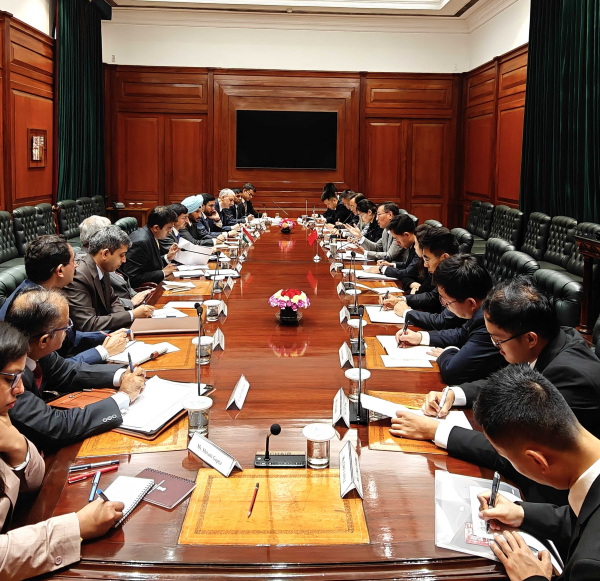China, India hold 34th Meeting of Working Mechanism for Consultation & Coordination on Border Affairs

Hong Liang, director-general for Boundary and Ocean Affairs of China's Ministry of Foreign Affairs, and Gourangalal Das, joint secretary of the East Asia Division of the Ministry of External Affairs of India co-chaired the 34th Meeting of the Working Mechanism for Consultation & Coordination on India-China Border Affairs in New Delhi on Wednesday.
Representatives from the foreign affairs, defense and immigration departments of both countries attended the meeting, according to a press release by China's Ministry of Foreign Affairs on Thursday.
The meeting is not merely a technical dialogue — it sends an important signal: Both sides are committed to using this mechanism to further implement the consensus reached by leaders of the two countries, stabilize current relations and steadily advance the improvement and warming of China-India relations, Qian Feng, director of the research department at the National Strategy Institute at Tsinghua University, told the Global Times.
Guided by the important consensus of the leaders of the two countries, the two sides focused on in-depth communication regarding the implementation of the outcomes of 23rd meeting of Special Representatives for China-India Boundary Question and agreed to jointly prepare for the 24th meeting.
The two sides spoke positively of the progress made in managing the border situation since last year and held candid and in-depth discussions on issues such as boundary negotiations, border management, institutional development, and cross-border exchanges and cooperation, reaching preliminary consensus. Both sides agreed to maintain communication through diplomatic and military channels and jointly uphold peace and tranquility in the border areas.
During their stay in New Delhi, the Chinese delegation also paid a courtesy call to Indian Foreign Secretary Shri Vikram Misri.
Qian said that, since its establishment, this working mechanism has been alternately held by both sides in their respective countries. It has played a positive role in maintaining stability and exercising control over the border situation. The mechanism not only reflects equal cooperation in form but, more importantly, it has enhanced political mutual trust and helped prevent the escalation of potential risks.
"It not only ensures timely communication on border affairs and helps maintain peace and stability along the border, but also reflects an improvement in China-India relations," Tian Guangqiang, an assistant research fellow with the National Institute of International Strategy at the Chinese Academy of Social Sciences, told the Global Times.
Qian, echoing Tian's comments, said that the current meeting takes place against the backdrop of gradually improving China-India relations.
Senior officials such as the foreign ministers, defense ministers and national security advisers have repeatedly expressed their support for improving bilateral ties. This continued consultation at the working level is part of the effort to follow through on that strategic guidance, Qian said.
Five years ago, in February 2020, India suspended Chinese citizens' tourist visa applications. However, the South Asian country announced on Wednesday that it will open tourist visa applications to Chinese citizens from July 24, 2025.
Tian viewed this move as a positive signal. Although some challenges remain, such as the Modi administration's lingering distrust toward China, both sides still demonstrate determination and confidence in improving ties and are taking steps in that direction, Tian added.
Tian said as the one who initiated the deterioration in bilateral relations, India needs to make greater efforts to improve ties and work with China toward the same goal.